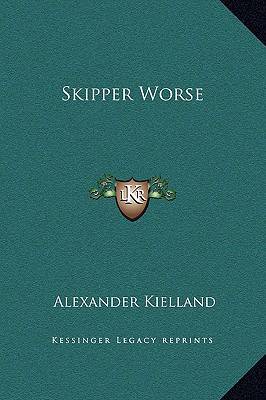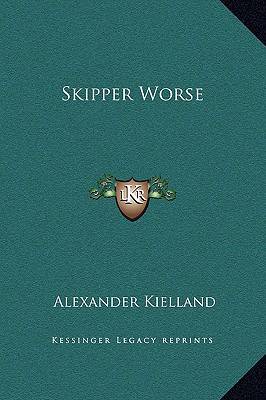
- Afhalen na 1 uur in een winkel met voorraad
- Gratis thuislevering in België vanaf € 30
- Ruim aanbod met 7 miljoen producten
- Afhalen na 1 uur in een winkel met voorraad
- Gratis thuislevering in België vanaf € 30
- Ruim aanbod met 7 miljoen producten
Zoeken
Omschrijving
Skipper Worse is a novel written by Alexander Kielland, a Norwegian author, and published in 1882. The story is set in the coastal town of Stavanger and revolves around the life of a shipowner named Jorgen ""Skipper"" Worse. Skipper Worse is a proud and ambitious man who has inherited his father's shipping business. He is married to a wealthy woman named Beate, but their marriage is unhappy due to his infidelity and Beate's jealousy. Worse becomes involved in a fraudulent scheme with a local businessman, and his business begins to suffer as a result. The novel explores themes of greed, corruption, and the consequences of one's actions. It also delves into the social and economic issues of the time, including the changing landscape of the shipping industry and the widening gap between the rich and poor. Kielland's writing style is characterized by his use of irony and satire, and his ability to capture the nuances of human behavior. The novel is considered a classic of Norwegian literature and has been translated into several languages.Lauritz is so funny, I can't help laughing at him. Just imagine! they stretched a rope across the street when it got dark, and two of them held each end. When any one came whom they disliked, they tightened it, and tripped him up. After a time the Commissioner came-you know, the one who is so cross and red-faced-and he tumbled head over heels, and broke his arm.""This scarce antiquarian book is a facsimile reprint of the old original and may contain some imperfections such as library marks and notations. Because we believe this work is culturally important, we have made it available as part of our commitment for protecting, preserving, and promoting the world's literature in affordable, high quality, modern editions, that are true to their original work.
Specificaties
Betrokkenen
- Auteur(s):
- Uitgeverij:
Inhoud
- Aantal bladzijden:
- 160
- Taal:
- Engels
Eigenschappen
- Productcode (EAN):
- 9781169268746
- Verschijningsdatum:
- 10/09/2010
- Uitvoering:
- Hardcover
- Formaat:
- Genaaid
- Afmetingen:
- 178 mm x 254 mm
- Gewicht:
- 498 g

Alleen bij Standaard Boekhandel
+ 105 punten op je klantenkaart van Standaard Boekhandel
Beoordelingen
We publiceren alleen reviews die voldoen aan de voorwaarden voor reviews. Bekijk onze voorwaarden voor reviews.











